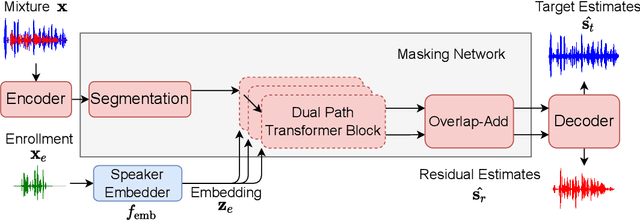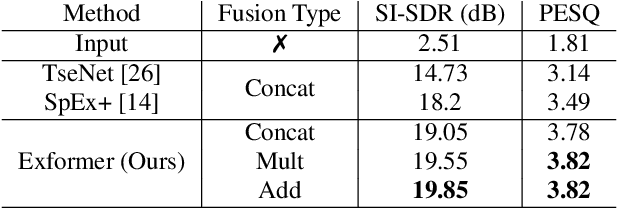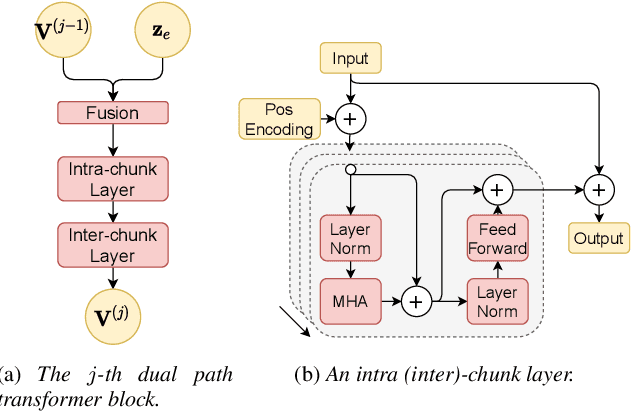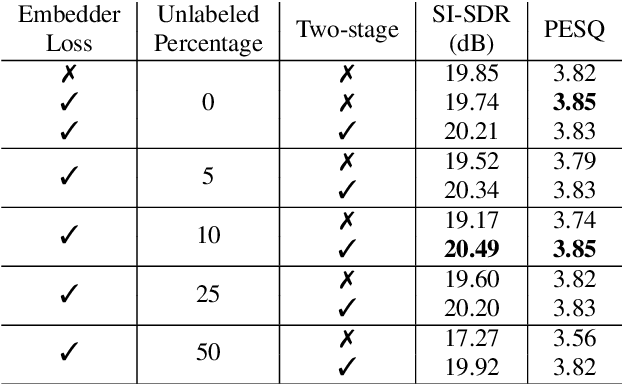Mike Goodwin
Noise-Robust DSP-Assisted Neural Pitch Estimation with Very Low Complexity
Sep 25, 2023Abstract:Pitch estimation is an essential step of many speech processing algorithms, including speech coding, synthesis, and enhancement. Recently, pitch estimators based on deep neural networks (DNNs) have have been outperforming well-established DSP-based techniques. Unfortunately, these new estimators can be impractical to deploy in real-time systems, both because of their relatively high complexity, and the fact that some require significant lookahead. We show that a hybrid estimator using a small deep neural network (DNN) with traditional DSP-based features can match or exceed the performance of pure DNN-based models, with a complexity and algorithmic delay comparable to traditional DSP-based algorithms. We further demonstrate that this hybrid approach can provide benefits for a neural vocoding task.
Framewise WaveGAN: High Speed Adversarial Vocoder in Time Domain with Very Low Computational Complexity
Dec 08, 2022Abstract:GAN vocoders are currently one of the state-of-the-art methods for building high-quality neural waveform generative models. However, most of their architectures require dozens of billion floating-point operations per second (GFLOPS) to generate speech waveforms in samplewise manner. This makes GAN vocoders still challenging to run on normal CPUs without accelerators or parallel computers. In this work, we propose a new architecture for GAN vocoders that mainly depends on recurrent and fully-connected networks to directly generate the time domain signal in framewise manner. This results in considerable reduction of the computational cost and enables very fast generation on both GPUs and low-complexity CPUs. Experimental results show that our Framewise WaveGAN vocoder achieves significantly higher quality than auto-regressive maximum-likelihood vocoders such as LPCNet at a very low complexity of 1.2 GFLOPS. This makes GAN vocoders more practical on edge and low-power devices.
Semi-supervised Time Domain Target Speaker Extraction with Attention
Jun 18, 2022



Abstract:In this work, we propose Exformer, a time-domain architecture for target speaker extraction. It consists of a pre-trained speaker embedder network and a separator network based on transformer encoder blocks. We study multiple methods to combine speaker information with the input mixture, and the resulting Exformer architecture obtains superior extraction performance compared to prior time-domain networks. Furthermore, we investigate a two-stage procedure to train the model using mixtures without reference signals upon a pre-trained supervised model. Experimental results show that the proposed semi-supervised learning procedure improves the performance of the supervised baselines.
 Add to Chrome
Add to Chrome Add to Firefox
Add to Firefox Add to Edge
Add to Edge